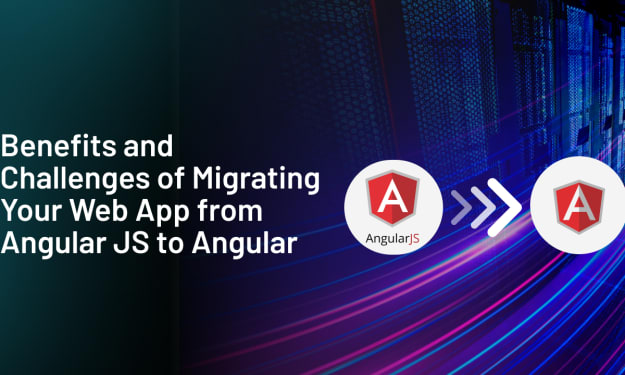7 Things to Consider when Choosing a Web Development Framework for an EdTech Application
Parameters to Consider For the Best Web Development Framework for an EdTech App

In this rapidly evolving space, the blend of technology and education has given rise to an advanced concept, EdTech. This field is meant to create interactive and personalized learning experiences by harnessing the power of modern web development frameworks. Provided numerous web development frameworks exist, we find ourselves at a crossroads.
Choosing the right web development framework for a transformative EdTech app is tricky. This article will discuss seven things to consider for the functional edTech web development framework.
Look for Scalability
Edtech apps often need to handle large amounts of data, such as user data, course materials, interactive content, and more. The web development company may want to scale the app and ensure seamless data management. So, they go for a framework that can support the situation.
As your edtech app gets more downloads, you should expect an increase in users. The ability to scale your application ensures it can handle this increased load without crashing or slowing down.
These apps may experience peak usage times, mainly when assignments are due or during exam periods. A scalable framework can handle these surges in demand without negatively impacting user experience.
Cost Estimation
While making a custom edTech app, planning for the budget should be the foremost criterion. Some frameworks, like Django and Laravel, are free and open-source, while others require a paid license. Include the licensing costs of the framework in the overall budget.
Consider the long-term costs for app scaling and maintenance. Some frameworks are more efficient and require fewer server resources. Choosing such frameworks will reduce hosting costs. Therefore, note the cost of future updates and fixes.
Cost estimation does not only include the project budget. The team should also find ways to cut expenses, if any.
Learning Curve
Take a situation where you want to build your edtech app using React.js but you are unaware of its syntax and libraries. Also, let's consider that your team finds it difficult to learn it. Would you be successful in the task? If you also learn the framework, completing the task will take a long time. Will it be feasible? No. Right?
So, before selecting the web development framework, research its learning curve (or the time taken to get familiar with it).
Also, note that different frameworks have different complexities. For example, AngularJS is known to have a steeper learning curve when compared to Vue.js or React.js due to the former's comprehensive nature. If your edtech app does not require advanced features, choosing a simpler framework is wiser.
Resource Availability and Documentation
Thorough documentation and good resource availability shorten the learning curve and development time and reduce potential roadblocks. It drives the success of your EdTech application project.
Resource availability for a web development framework refers to community support and the availability of tools. A framework with a large community will have more developers. It implies you'll have an easier time finding human resources to work on your project. Also, frameworks with larger communities tend to have more third-party libraries, plugins, and integrations. Therefore, such a web framework speeds up development and provides more functionality.
Documentation for a web development framework is the quality of the existing guides, API references, tutorials, and examples. Good documentation is needed to learn a new framework and resolve issues during development.
Mobile Responsiveness
Today's learners expect a smooth experience, whether they access the app from a laptop or a smartphone. The chosen framework should support responsive design principles. Especially in the academic field, it is necessary to make the app accessible to as many people as possible. This includes those who may primarily access the internet from mobile devices.
Also, ask the web development company to consider a framework that supports cross-platform development. For example, React Native or Flutter supports app development for both web and mobile platforms. Hence, choosing such a framework will help you maintain a consistent user experience across platforms.
Third-Party Integration Support
Integrating third-party services enhances the functionality of your application with less effort. Experts from the web development company add features like payment gateways, video conferencing tools, and more. However, it should be based on your edTech business requirements.
In this regard, the chosen framework should be flexible enough to add in various third-party services. This may include REST APIs, GraphQL APIs, and SDKs. Moreover, a large, active community helps integrate third-party services. They might have already solved the issues you are stuck in.
So, when choosing the web development framework for your edTech app, look for its ease of third-party integration.
Evaluating Team’s Expertise
A mismatch between the chosen framework and your team's skills can lead to inefficiencies and delays in the project. A team familiar with the selected framework can start development immediately.
Also, developers produce better quality work when they work with tools they understand well. Let's say you want to add a quiz section to your edTech app. However, you cannot brainstorm the code logic as you are unaware of the framework's basic syntax. Will you be able to achieve what you were looking for? No, you won't. So, it is better to evaluate your team's expertise before choosing any specific framework.
What are the Popular Web Development Frameworks for EdTech Apps?
Before deciding which web frameworks work the best for your edtech app, you need to determine the type of edTech app you want to build. You can build Virtual Learning Environments software, Learning Management Systems, Online Program Management, or Immersive Technology-based apps. Firstly, you need to decide on these things and then move forward towards selecting a specific app.
Although your web development company will guide you in selecting the best, here are the standard web development frameworks mentioned below.
Vue.js
It is a frontend framework and uses the Model-View-Binder architectural style. Vue.js is a lightweight high-performing JS framework. With vue.js, you can build single-page apps and dynamic UIs.
Ember.js
This is a JS-based frontend framework. Ember.js follows the MVVM architectural style. Besides being one of the best web development frameworks, it is also used to build desktop and mobile apps.
Angular
Angular is a popular frontend framework built on TypeScript. It is an open-source framework used to build functional web apps. Websites such as Lego and Upwork use Angular for a responsive frontend.
Express
It is an open-source framework. Express is based on Java and is used for creating the backend structure of websites. Besides building web apps, developers use this framework to create APIs.
React.js
It is a frontend framework based on JavaScript. It is used to build scalable and dynamic web apps.
Laravel
It is an open-source and free web dev framework. Laravel is based on PHP and follows a model-view-controller architectural style. It offers an elegant syntax suitable for customization.
Ruby on Rails
It is a backend framework meant to build high-speed web apps. If you want to develop a database-driven app, go for Ruby on Rails without a second thought.
Make your edtech app stand out with the assistance of web development companies in NYC.
To Conclude
You will find hundreds of web development frameworks. Some have become obsolete, while some are the trendiest. Choosing the most popular one may not serve your purpose. You Should evaluate your business requirements, goals, and objectives. Also, consider the parameters mentioned in this article to choose the most appropriate one.
About the Creator
Jessica Bennett
Jessica is an individual contributor for various leading publications. Writing about technology, design and the latest innovations is her primary knack. She also works for Unified Infotech, a technology service provider serving startups.






Comments
There are no comments for this story
Be the first to respond and start the conversation.